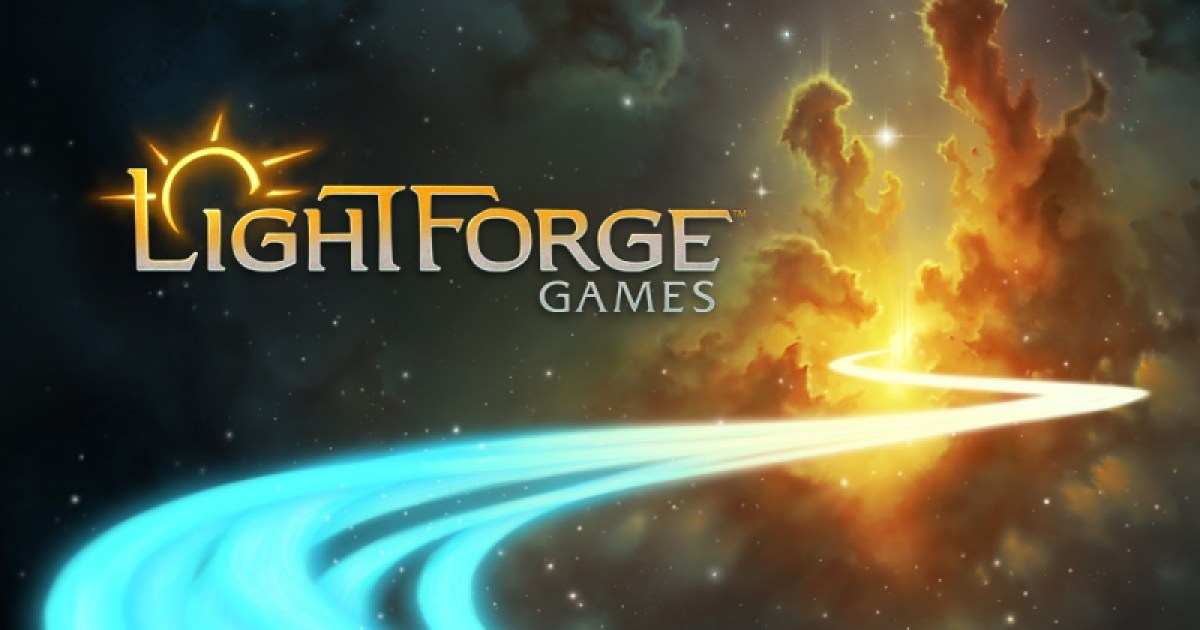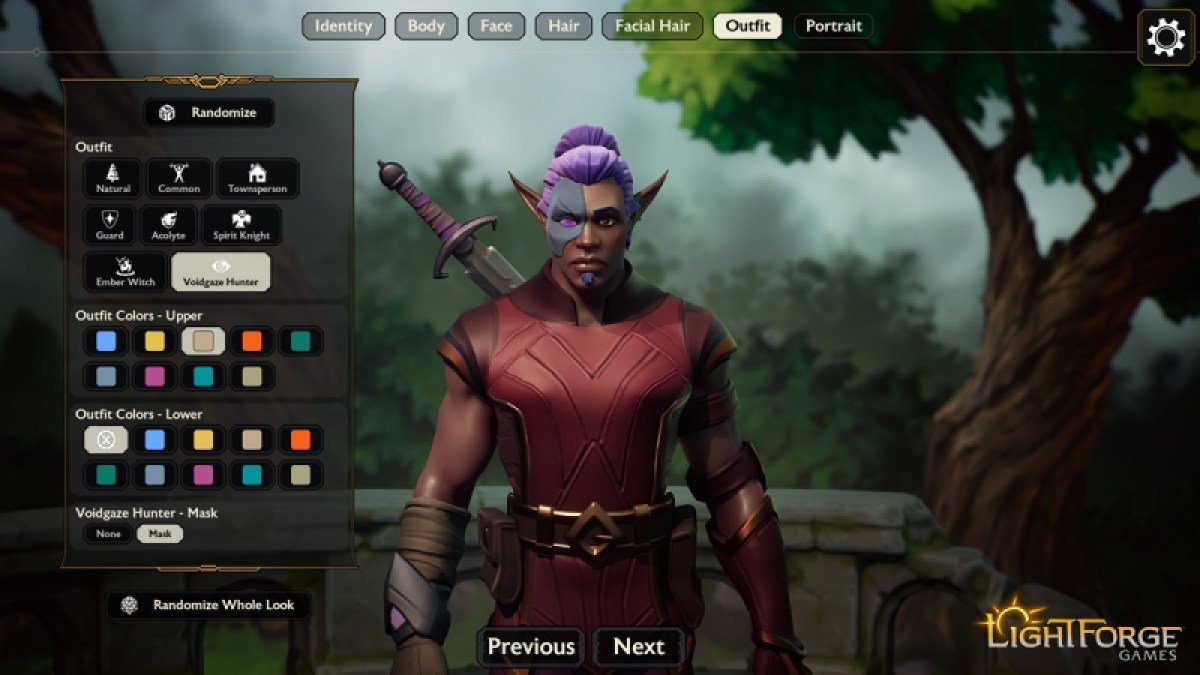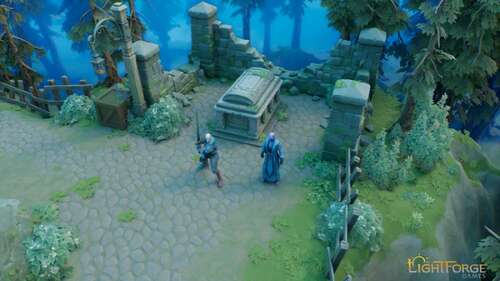Lightforge Games, a studio formed by industry veterans from Epic Games and Blizzard, announced the development of Project O.R.C.S., an online role-playing game with collaborative storytelling.
With aspirations to redefine the RPG landscape, Project O.R.C.S. introduces a unique Collaborative Storytelling RPG (CSRPG) genre, encouraging players to craft their tabletop-like experiences in fully-realized scenes, the company said.
In a demo, a team of players goes through a fantasy world, viewing the action from a third-person view. But one of those players is the dungeon master, who can control the non-player characters (NPCs) in the scene. The human dungeon master, or guide in the game, can respond to the player actions with new orders for the NPCs. And the human guide can also drop hits for the human players on what to do, said Lightforge Games CEO, Matt Schembari, in an interview with GamesBeat.
“We always knew that the mission was always to bring the magic of tabletop RPGs to a mainstream videogame audience,” he said. “That’s something that has been a holy grail in my own head as a game developer for like the last 10 years. I’ve been thinking about this project one way or the other. And I knew from the beginning, that we didn’t want to make a virtual tabletop game.”
GB Event
GamesBeat Summit Call for Speakers
We’re thrilled to open our call for speakers to our flagship event, GamesBeat Summit 2024 hosted in Los Angeles, where we will explore the theme of “Resilience and Adaption”.

The party of adventurers controls their own characters and they go off on quests. You throw the dice and react to the results of it. That’s the core gameplay. There’s a roguelike structure to the game, which has a hub called the Safehold. That’s where you can find members of your guild.
This might be 30 or 40 people, and your guild builds up the town based on core progression. Things happen that can be threats or opportunities for the town, and then players go out on quests in their small parties. You don’t have to go out on the quest with the same people every time. You can rotate among your guild members. That takes care of the human availability problem.
“We want people to be able to come home from school or work, log in, find some people to play with, and form a new party,” Schemari said.
When you complete the quest, the rewards go to the town. There’s no AI scripting for the NPCs in the game, as the guide is controlling all the NPCs themselves.

“We unapologetically have a human guide in our game,” Schembari said.
In this game, when you roll the dice, you get presented with a series of cards. The person who rolled gets to choose what the result is. That makes the roleplaying easier. It also means the guide doesn’t have to constantly explain what is happening. That takes the pressure off being a dungeon master.
“We’ve set out to make a role-playing experience that has never been attempted before in the games industry,” said Schembari. “We’re calling it a collaborative storytelling RPG or CSRPG. Project O.R.C.S. is a collaborative game that will give new and old RPG fans a way to create their own stories on an interactive canvas.”
Project O.R.C.S. will be a cooperative multiplayer experience that simplifies and enhances fantasy roleplaying. The CSRPG will empower players to create and partake in fantastical adventures, whether self-made or curated by the studio, fostering a social experience akin to storytelling among friends.
Players will embark on quests in various environments, leveling up characters, and establishing a home base known as Safehold in Project O.R.C.S. The game caters to both veteran RPG enthusiasts, offering depth in progression systems, and newcomers, introducing them to the world of roleplaying through intuitive systems and helpful prompts.
“Project O.R.C.S. acts as an on-ramp to roleplaying,” added Schembari. “We’ve combined the fun, feel, and features of a video game with the flexibility you expect when roleplaying with your friends.”
A key feature of Project O.R.C.S. is its built-in editor, allowing players to customize landscapes, buildings, enemies, and friendly NPCs in the scenes where they role-play. This dynamic editing capability enables players to pre-create or modify scenes on-the-fly, responding to both player actions and dice results.

Project O.R.C.S. is set to launch in early access in 2024 on PC. The company was founded in 2020 and it has 35 employees. Schemari was previously a lead engineer at Blizzard and the director of UI at Epic Games. The company has raised $20 million.
The aim is to capture the magic about tabletop RPGs, such as the social connectedness, flexibility, creativity, improve and the general excuse to get together with your friends and laugh, Schembari said.
“That’s what we really want to capture in video game form,” Schembari said. “The first first two and a half years or so of the project was definitely a lot of like soul searching of what does it mean to capture that. What does it mean to be a video game where anything can happen?”
At some point, everything clicked and it fell into place, Schembari said.
“It’s a video game where you’re talking a lot,” he said. “I actually think we have more in common with Among Us than Baldurs Gate. That’s because talking is such an important part of the gameplay. Talking and laughing.”
VentureBeat’s mission is to be a digital town square for technical decision-makers to gain knowledge about transformative enterprise technology and transact. Discover our Briefings.

